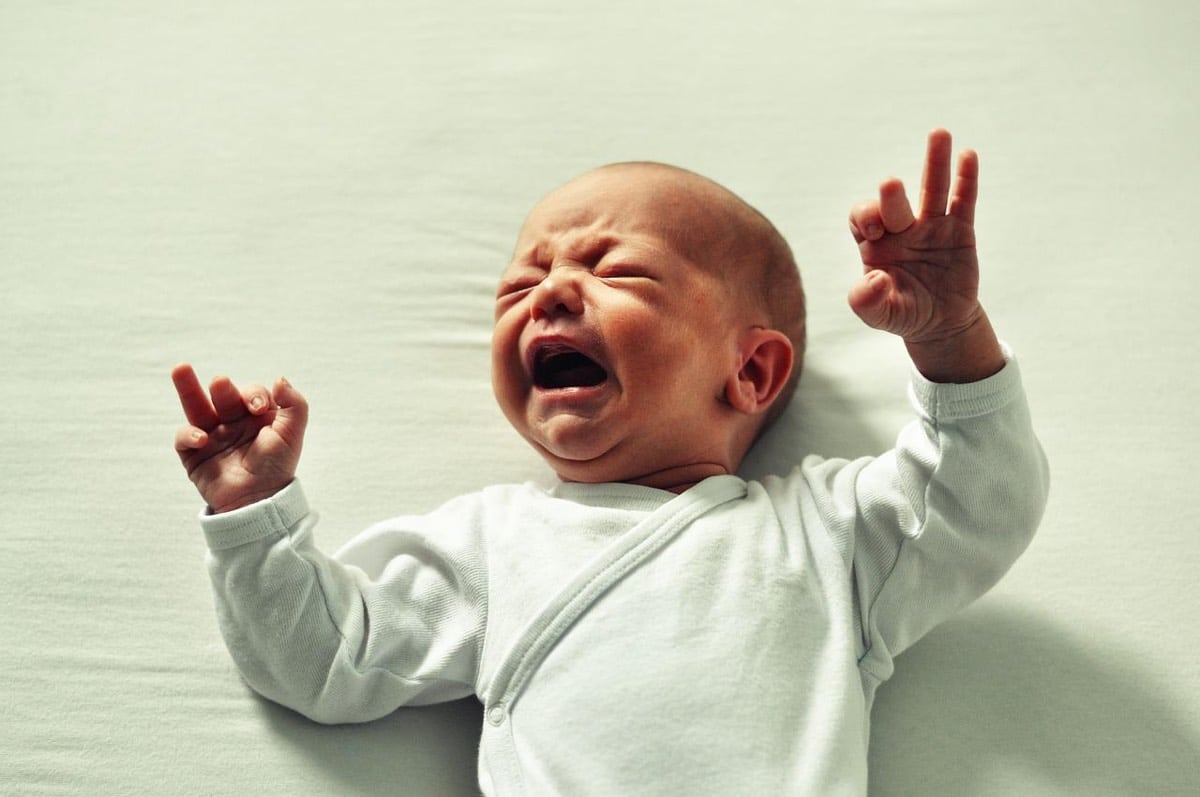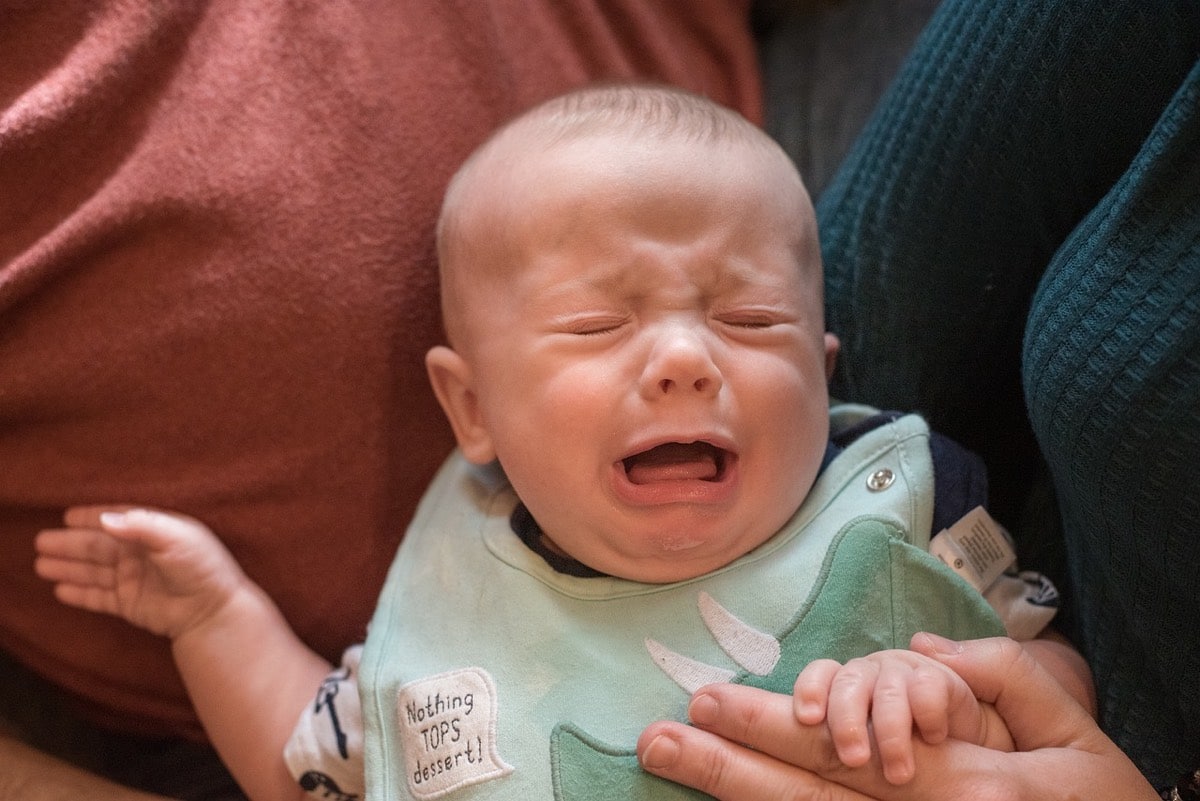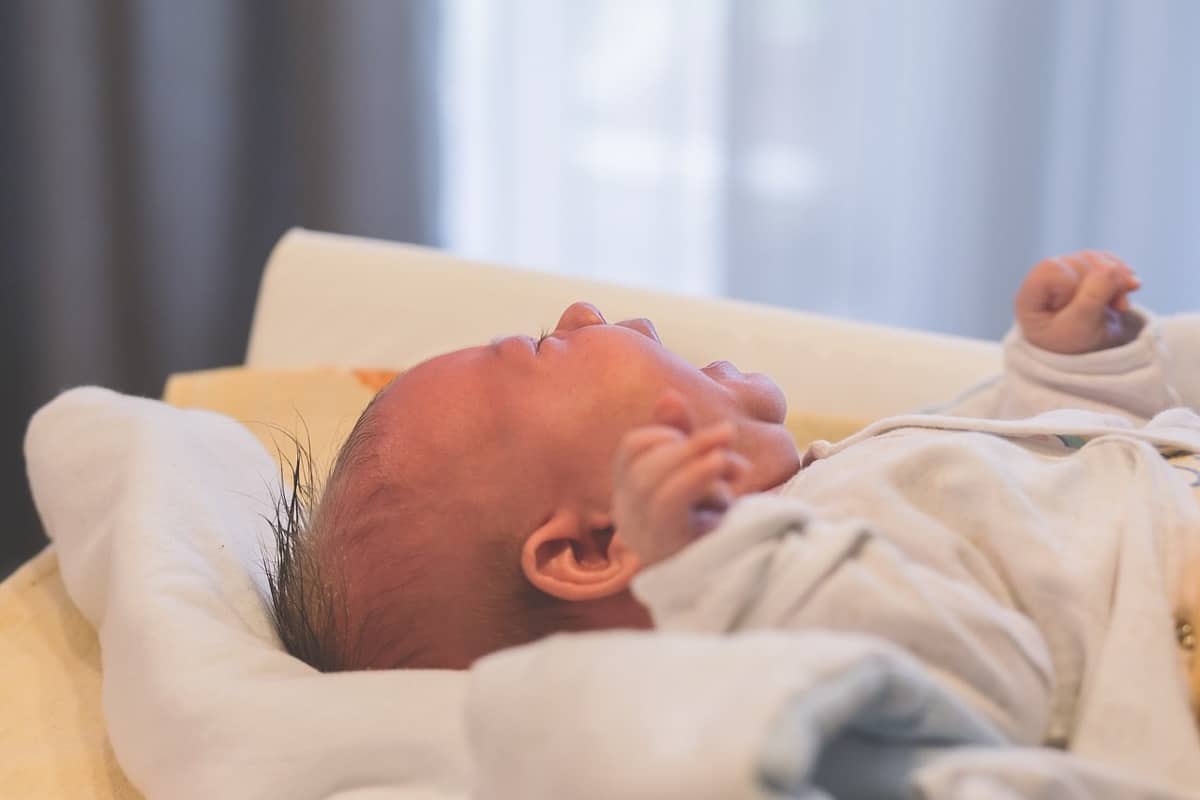
From newborns to toddlers, babies can grunt at different times of the day and night. Some parents worry that these sounds are a sign that something is wrong. But most of the time, a baby's grunting is perfectly normal. Grunting is usually related to digestion. The baby growls because he just gets used to breast milk or formula. He may have gas or pressure in his stomach that makes them uncomfortable and they haven't learned how to handle things yet.
While most grunting is normal, pay attention if your baby is grunting with each breath, has a fever, or appears distressed. This could be a sign of a more serious breathing problem and would need immediate medical attention.
Why does a baby growl?

During sleep may growl
Babies make all kinds of sounds in their sleep from birth. His sleep is often restless. Sometimes the baby may sleep so soundly that he makes loud noises, but it can also be due to restless sleep. Grunting is a normal sound that babies make during sleep., along with gurgling, screeching, and snoring. They may wake up several times or be nearly awake during sleeping hours.
Most of these sounds are completely normal and do not indicate any health or respiratory problems. Nevertheless, If you are worried that your baby cannot breathe well, you can take the following precautions:
- Your baby's clothes are loose, but not too loose.
- The temperature of the room where it is is adequate, it is neither too cold nor too hot.
- There is nothing in his crib but a fitted sheet.
- They are wrapped or wearing a warm nightwear, not covered by blankets or sheets.
- Your baby is on his back in the crib.
- The mattress of the crib is firm, it is not good that the mattress is soft.
A baby grunting from constipation
Babies often have some difficulty passing stools. When we stand up, gravity helps stool move out of the body. But babies are usually in a horizontal position, so it can be more difficult for them. Your baby may grunt and strain when trying to pass a resistant bowel movement.
It's easy to know if your baby is constipated. If your stools are hard, or if you cry every time you soil your diaper, you most likely have constipation. If this is your case, never give him laxatives or enemas unless under the supervision of his pediatrician, so see your doctor if you think your baby is constipated. Most likely, he will advise you to drink more water or fruit juice. On the other hand, if apart from constipation your baby has a fever, vomiting, blood in the stool or if you notice a swollen belly, seek emergency medical attention.
Mucus in the nose and nasal passages

Babies have very small noses and nostrils, and newborns also often have a lot of mucus. This is not due to any disease, it is simply that his respiratory system is in full development. This can be very bothersome when breathing because they normally breathe through their nose as this makes feeding easier.
It's easy for their little nose to get stuffy, causing strange noises like grunting, coughing, and sneezing. If this happens, help him clear his nostrils using a nasal aspirator or using baby saline. If he grunted with every breath despite clearing his nostrils, tell his pediatrician. as soon as possible.
A baby grunting from acid reflux
Some babies have acid reflux. This can cause gurgling and grunting during digestion. The muscles of your digestive system are still developing, so the muscle between the stomach and the esophagus does not always stay closed properly. The fact that babies are lying down most of the time favors this problem.
Most cases of childhood acid reflux are completely normal. Regurgitation is the result of this problem. Most babies spit up from time to time. However, if infant reflux is accompanied by any of these symptoms, it could be an indication of a more serious problem that should be treated by a doctor. These symptoms are:
- The baby is not gaining weight
- Frequent forced vomiting
- Spitting up is green, yellow, red, or brown
- Does not want to eat
- You have blood in your stool or diaper
If your baby spits up a lot, growls a lot after eating and has any of the above symptoms, see your pediatrician as soon as possible for examination and diagnosis.